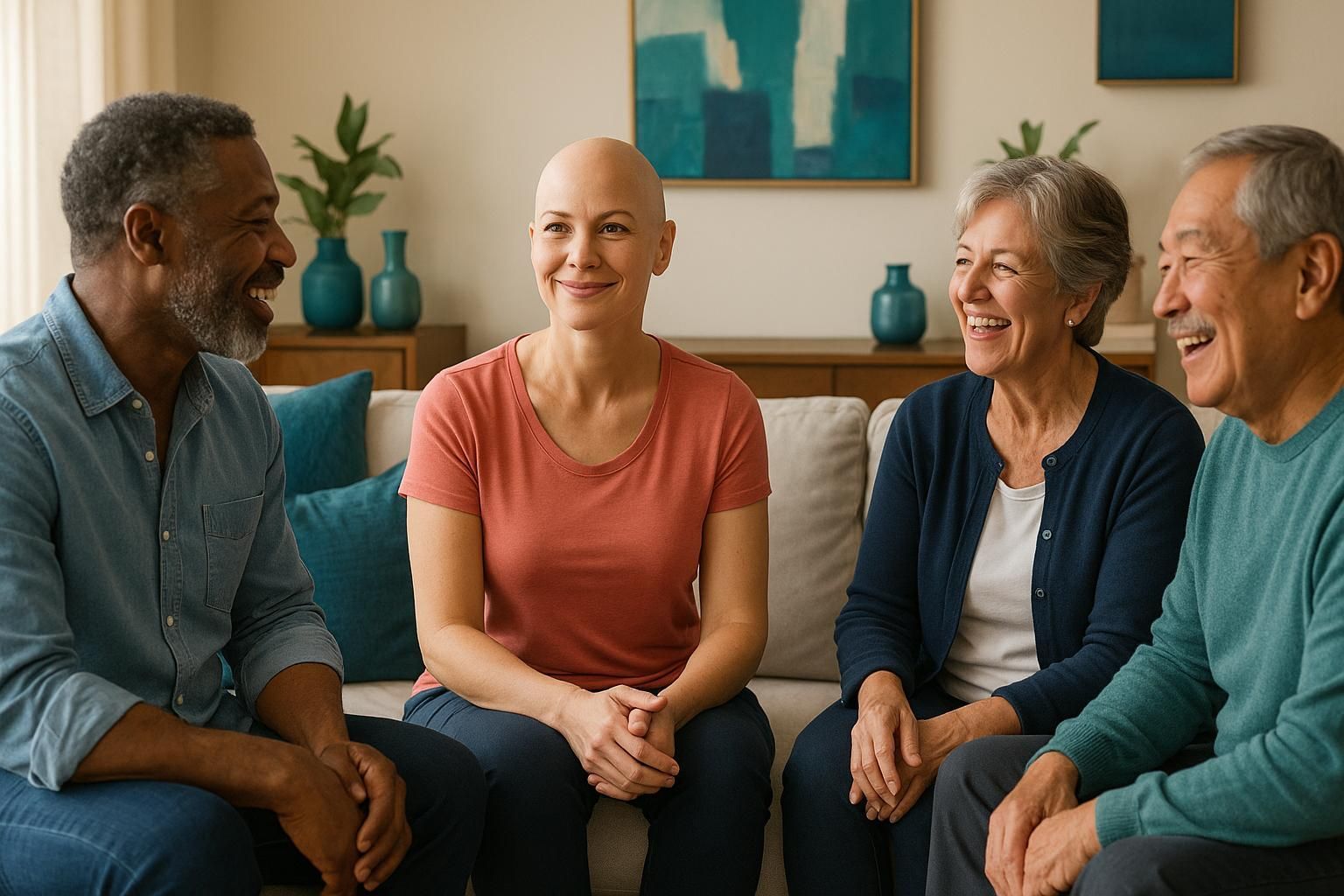What Is Bowel Movements Without Knowing? The Answer Might Surprise You
By Dr. Ritha Belizaire
Quick Insights:
Bowel movements without knowing are involuntary, often silent releases of stool, sometimes called fecal incontinence. This happens when nerves or muscles controlling the bowel don't signal properly, leading to accidents—especially during sleep. It requires prompt attention to prevent ongoing discomfort or worsening health risks.
Key Takeaways:
- Only about one third of all adults have one regular daily bowel movement; changes often suggest an underlying concern.
- Silent accidental bowel release may result from weakened muscles, nerve damage, or certain medications affecting control.
- Fecal incontinence is common among older adults and those with chronic illnesses, increasing the risk of skin irritation and infection.
- Ignoring unrecognized bowel leakage can lead to social withdrawal, depression, and potential complications if not medically addressed.
Why It Matters:
Bowel movements without knowing can rob you of confidence, independence, and dignity—fueling embarrassment and missed activities. Recognizing signs early empowers you to reclaim control, protect your health, and get back to life without fear or shame. Prompt care means a smoother, more comfortable future.
Introduction
As a board-certified colorectal surgeon in Houston, I understand how unsettling bowel movements without knowing can be—especially when dignity and confidence are at stake.
Bowel movements without knowing is a condition where stool passes involuntarily, often called accidental bowel release or fecal incontinence. It's more than just a medical term; for many, it means worry about silent leaks during sleep or social events, which can deeply affect your quality of life and peace of mind.
What surprises many is that only 40% of men and 33% of women have one bowel movement per day; what's "normal" really varies, and research highlights that even healthy people may experience unpredictable changes. This is why a personalized, compassionate approach—one that honors your comfort and privacy—matters so much in treatment.
Worried about pooping in sleep or accidental bowel release? You're not alone, and help in Houston is absolutely within reach.
What Are 'Bowel Movements Without Knowing'?
When I talk about "bowel movements without knowing," I'm describing those moments when stool slips out without your awareness—sometimes called accidental bowel release or fecal incontinence. It's not just a medical term; it's the reality of losing control over your bowels, often at the most inconvenient times. This can range from a small leak to a full movement, and it may happen during the day or even while you're sleeping.
Who Is at Risk?
You might be surprised to learn that this isn't just an "old age" problem. While it's more common as we get older, anyone can experience it—especially if you've had surgery, nerve injury, or chronic conditions like diabetes. In my practice, I see this in people who've had childbirth injuries, spinal issues, or even after certain medications. The key is that you're not alone, and there's no shame in seeking answers.
Common Causes & Silent Symptoms
Physical and Nerve Causes
Bowel movements without knowing often stem from weakened muscles or nerve damage. The muscles around your anus (the sphincters) act like a security guard, but if they're injured—say, from childbirth, surgery, or chronic straining—they can't do their job. Nerve problems, such as those from diabetes or spinal injuries, can also disrupt the signals that tell you when it's time to go. According to clinical guidelines, monitoring changes in bowel habits is crucial because these shifts can signal underlying issues that need attention.
Overlapping Conditions
Sometimes, other conditions sneak in and make things worse. Chronic constipation, irritable bowel syndrome (IBS), or even infections can lead to accidental leaks. Certain medications may influence bowel function and contribute to fecal incontinence. I've seen patients who thought their symptoms were "just aging," only to discover a treatable cause. Research shows that even healthy people can have unpredictable changes in bowel habits, so don't ignore new or worsening symptoms.
'Pooping in Sleep': What Does It Mean?
Sleep-Related Incontinence
Waking up to find you've had a bowel movement in your sleep can be distressing. This "pooping in sleep" is more common than you might think, especially in older adults or those with chronic illnesses. It usually means the body's normal warning signals aren't working—either because of nerve issues, muscle weakness, or sometimes medications that relax the bowels overnight. In my experience, sleep-related incontinence often signals a need for a closer look at your overall bowel health.
Normal vs. Abnormal Events
It's normal for bowel habits to change with age, diet, or stress. But if you're having accidents in your sleep, that's a red flag. Occasional mild leakage might happen after a stomach bug or a new medication, but regular nighttime accidents are not "just part of getting older." If you notice this, it's time to talk to a physician who specializes in bowel health.
Is Accidental Bowel Release Dangerous?
Potential Health Risks
Accidental bowel release isn't just embarrassing—it can lead to real health problems. Skin irritation, rashes, and infections are common if stool sits on the skin for too long. More importantly, research shows that abnormal bowel movement frequency is linked to long-term health risks, including chronic diseases. I always remind my patients that ignoring these symptoms can make things worse, not better.
Red Flags to Watch
Watch for these warning signs:
- Sudden, severe changes in bowel habits
- Blood in your stool
- Unexplained weight loss
- Persistent abdominal pain
If you notice any of these, don't wait—these could signal something more serious, like colorectal cancer or inflammatory bowel disease. Clinical guidelines emphasize that urgent symptoms require prompt evaluation by a physician.
When to Seek Medical Attention
If you experience sudden loss of bowel control, blood in your stool, or ongoing pain, seek immediate care from a physician. These symptoms may indicate a serious underlying condition that needs urgent attention.
When Should You See a Specialist?
Self-Management vs. Medical Care
Some people try to manage accidental bowel release on their own—changing diets, using over-the-counter remedies, or wearing pads. While these steps can help manage symptoms, they may not address the underlying causes of fecal incontinence. If you're having regular accidents, especially if they're getting worse, it's time to see a specialist. As a board-certified colorectal surgeon, I can pinpoint the cause and offer solutions that go beyond "just living with it." Clinical guidelines recommend seeing a specialist if symptoms persist or interfere with daily life.
What to Expect at Your Appointment
When you come to see me, I'll start with a detailed conversation—no judgment, just understanding. I'll ask about your symptoms, medical history, and any medications. Sometimes, simple tests like an exam or stool study are enough. Other times, we use advanced tools to check muscle strength or nerve function. My goal is to make you feel comfortable and respected every step of the way.
How Dr. Belizaire Can Help in Houston
At Houston Community Surgical, I use a step-by-step approach to get to the bottom of your symptoms. This includes a thorough exam, specialized tests, and sometimes imaging to rule out serious conditions. I've found that a personalized plan—tailored to your unique needs—leads to the best results.
Minimally Invasive Solutions
I offer a range of treatments, from dietary changes and pelvic floor therapy to advanced procedures like Axonics sacral neuromodulation and in-office treatments under nitrous oxide. These minimally invasive options mean less downtime and more comfort. Research shows that managing bowel movement frequency can optimize health and wellness, even for healthy individuals. In my experience, early intervention and compassionate care help patients regain confidence and independence faster.
What Our Patients Say on Google
Hearing directly from those I care for is one of the most meaningful parts of my work. Patient experiences often speak louder than any list of credentials or awards.
I recently received feedback that captures what we aim to provide at Houston Community Surgical—compassionate, expert care that truly makes a difference. Here's how one patient described their journey:
"I recently had surgery performed by Dr. Belizaire, and I cannot express how grateful I am for the exceptional care I received."
— Paulyann
You can read more Google reviews here to see how others have felt supported and respected throughout their care.
Stories like this remind me why it's so important to address sensitive issues like bowel movements without knowing—with empathy, skill, and a commitment to restoring your confidence.
Bowel Movements Without Knowing: Expert Help in Houston
Living in Houston means you have access to advanced, compassionate colorectal care for bowel movements without knowing—right in your own backyard. The city's diverse population and vibrant lifestyle can sometimes make it tricky to talk about sensitive symptoms, but you're not alone.
Environmental factors, physical activity levels, and dietary habits may influence digestive health and bowel patterns. That's why I tailor every evaluation and treatment plan to fit your unique needs, taking into account both medical and lifestyle factors.
At Houston Community Surgical, I offer same-day and next-day appointments, so you don't have to wait or travel far for answers. Whether you're worried about pooping in sleep, accidental bowel release, or just want peace of mind, expert help is close by.
If you're in Houston and ready to take the next step, call 832-979-5670 to schedule a confidential consultation. Your comfort, dignity, and health are always my top priorities.
Conclusion
Bowel movements without knowing can feel like your dignity is slipping away, but you're not alone—and you don't have to just "live with it." In summary, these silent symptoms often signal treatable issues, and early intervention can restore both comfort and confidence. As a board-certified general and colorectal surgeon, I specialize in compassionate, minimally invasive solutions—from sacral neuromodulation to in-office procedures under nitrous oxide—so you can stop missing out on life's moments. Research shows that managing bowel movement frequency is key to long-term health and quality of life.
If you're in Houston and ready to take back control, call me at 832-979-5670 for a same-day or next-day appointment. Not local? I offer virtual second opinions at www.2ndscope.com. Don't let embarrassment keep you from the care you deserve—your comfort and dignity are always my top priorities.
This article is for educational purposes only and should not be used as a substitute for professional medical advice, diagnosis, or treatment. Always seek the advice of your physician or other qualified healthcare provider with any questions you may have regarding a medical condition or treatment options. Never disregard professional medical advice or delay in seeking it because of something you have read in this article.
Before you go, don't forget to subscribe to my colorectal health newsletter to stay updated on the latest insights and care tips for digestive health.
Frequently Asked Questions
What causes bowel movements without knowing?
Bowel movements without knowing are usually caused by weakened muscles or nerve problems that affect bowel control. Sometimes, chronic conditions, medications, or even past surgeries can play a role. This issue is more common with age but can affect anyone. Recognizing the signs early helps you get the right treatment and regain confidence.
Where can I find help for accidental bowel release in Houston?
You can find expert help for accidental bowel release at my practice, Houston Community Surgical. I offer same-day and next-day appointments, as well as minimally invasive treatments tailored to your needs. If you're not in Houston, I also provide virtual second opinions, so you can get answers and support no matter where you live.
How do you help patients feel comfortable during sensitive exams or treatments?
I understand that discussing and treating bowel issues can be embarrassing or stressful. That's why I offer a private, judgment-free environment and use options like nitrous oxide for in-office procedures to ease anxiety. My goal is to make every patient feel respected, comfortable, and fully informed throughout their care.
SHARE ARTICLE:
SEARCH POST:
RECENT POSTS:






